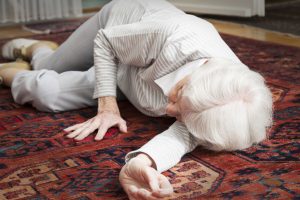 The fall season is full of activities and holidays to enjoy with friends and family. However, this part of the year also brings with it many different health concerns that can make the season more difficult to enjoy. There are a few important steps you should take to protect your health and the well-being of your loved ones this fall, including:
The fall season is full of activities and holidays to enjoy with friends and family. However, this part of the year also brings with it many different health concerns that can make the season more difficult to enjoy. There are a few important steps you should take to protect your health and the well-being of your loved ones this fall, including:
Getting vaccinated: A wide range of illnesses become more common during the fall season, such as the flu and COVID-19. The simplest step you can take to effectively protect yourself against these illnesses is to get vaccinated. While vaccination does not make it impossible for you to catch these diseases, it does make getting sick less likely, and if you do get sick, it can significantly reduce the severity of your symptoms.
Spending time outdoors: As the days become shorter throughout the fall, many people experience symptoms of mental conditions such as seasonal affective disorder, a form of depression that typically begins during the fall and continues throughout the winter. These symptoms can be reduced by getting adequate sunlight exposure and spending time on outdoor activities such as walking or jogging.
Wearing appropriate seasonal clothing: Throughout the fall season, the weather gradually becomes colder, making it important to have warm, comfortable clothing, such as long-sleeved shirts and pants, coats, and hats. These can protect you against issues such as dry skin and other cold-related health problems.
If you experience symptoms of a seasonal medical condition, you can schedule an appointment with a doctor at Flushing Hospital Medical Center’s Ambulatory Care Center by calling (718) 670-5486.
All content of this newsletter is intended for general information purposes only and is not intended or implied to be a substitute for professional medical advice, diagnosis or treatment. Please consult a medical professional before adopting any of the suggestions on this page. You must never disregard professional medical advice or delay seeking medical treatment based upon any content of this newsletter. PROMPTLY CONSULT YOUR PHYSICIAN OR CALL 911 IF YOU BELIEVE YOU HAVE A MEDICAL EMERGENCY.


